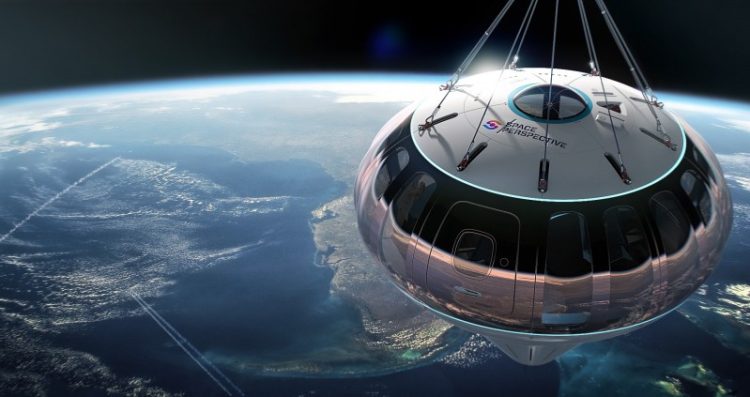Introduction
The exploration of outer space has long been dominated by governmental space agencies such as NASA, Roscosmos, the European Space Agency (ESA), and the China National Space Administration (CNSA). However, the landscape of space exploration is undergoing a dramatic transformation. Over the past few decades, private companies have entered the fray, marking the dawn of a new era in commercial space exploration. Commercial space companies like SpaceX, Blue Origin, and Virgin Galactic are challenging traditional models and offering new opportunities for space exploration, tourism, and development.
The question arises: Can commercial space companies accelerate humanity’s exploration of outer space? To answer this, we need to explore the key contributions of commercial companies, the challenges they face, and the potential for collaboration between the private sector and governments. This article aims to assess whether these companies can truly be the driving force behind humanity’s continued expansion into the cosmos.
1. The Rise of Commercial Space Companies
A. SpaceX: Leading the Charge
SpaceX, founded by Elon Musk in 2002, has become one of the most prominent commercial space companies in the world. Its ambitious goal is to reduce the cost of space travel and eventually enable human colonization of Mars. SpaceX’s reusable Falcon rockets and the Crew Dragon spacecraft have revolutionized the space industry. By reducing the cost of launching satellites and cargo into orbit, SpaceX has already made significant contributions to space exploration.
- Reusability: SpaceX’s innovation with reusable rocket technology has drastically lowered the cost of space launches. Unlike traditional expendable rockets, SpaceX’s Falcon 9 and Falcon Heavy rockets can return to Earth, land vertically, and be reused for future missions. This technology has been instrumental in making space travel more affordable and sustainable.
- Commercializing Space: SpaceX has also created new opportunities for private sector involvement in space exploration. By providing launch services for satellites, cargo resupply missions to the International Space Station (ISS), and crewed missions through NASA’s Commercial Crew Program, SpaceX has shown that private companies can successfully partner with governmental agencies to achieve space exploration goals.
- Mars Mission: Musk’s ultimate vision is to establish a human settlement on Mars. SpaceX is developing the Starship spacecraft, designed for interplanetary travel. While the mission to Mars is still years away, the development of Starship represents a significant leap forward in the potential for commercial companies to lead in the exploration of other planets.
B. Blue Origin: Space Tourism and Lunar Exploration
Blue Origin, founded by Jeff Bezos in 2000, has been a key player in the private space industry, with a focus on reducing the cost of space travel and creating a future where millions of people can live and work in space. Blue Origin’s New Shepard spacecraft is designed for suborbital flights, providing space tourism opportunities for those willing to pay for a brief, but exhilarating, trip to space.
- Suborbital Tourism: Blue Origin’s New Shepard system offers commercial suborbital flights, providing customers with a few minutes of weightlessness and stunning views of Earth. While currently focused on space tourism, these flights offer valuable data on human space travel and help develop technology that can be used for more advanced space missions.
- Lunar Ambitions: In addition to space tourism, Blue Origin is also focused on lunar exploration. The company has developed the Blue Moon lunar lander, which it aims to use for delivering payloads to the Moon’s surface. This is a key component of NASA’s Artemis program, which aims to return humans to the Moon by 2024. Blue Origin’s participation in this initiative could significantly accelerate the timeline for lunar exploration.
C. Virgin Galactic: Space Tourism and Public Interest in Space
Virgin Galactic, founded by Sir Richard Branson in 2004, focuses on commercial space tourism. The company’s SpaceShipTwo spacecraft, designed for suborbital flights, is aimed at providing paying customers with an unforgettable experience of space travel. While Virgin Galactic is not focused on deep space exploration like SpaceX, it plays a crucial role in cultivating public interest in space and fostering the growth of the space tourism industry.
- Public Engagement: Virgin Galactic’s flights, though short and suborbital, bring space travel closer to the public. The company has garnered significant media attention, and as the first commercial space tourism company to send customers to space, it has made space exploration feel more accessible to the general public.
- Tourism as a Gateway: While Virgin Galactic is not focused on the kind of deep space missions that would accelerate humanity’s exploration of distant planets, it provides a stepping stone for people to experience space, helping to lay the groundwork for more ambitious space endeavors in the future.
2. How Commercial Companies Can Accelerate Space Exploration
A. Reducing Costs and Increasing Accessibility
Historically, space exploration has been prohibitively expensive. Government-funded missions have relied on enormous budgets, and the cost of launching payloads into space has been a significant barrier. Commercial companies are working to address this issue by making space more affordable and accessible.
- Cost Reduction: Reusable rockets, pioneered by SpaceX, have made a huge impact on the cost of space travel. SpaceX has been able to cut the price of launching satellites and cargo by 90%, making it much cheaper for governments, research institutions, and private entities to send payloads to space. The continued development of reusable rocket technology will make space exploration more economically viable, enabling more missions to be launched at lower cost.
- Private Partnerships: Commercial companies are increasingly collaborating with space agencies to share the financial burden of exploration. For example, SpaceX’s partnership with NASA has enabled cargo resupply missions to the ISS, and NASA has turned to private companies to help with crewed missions. These partnerships reduce the financial burden on government agencies while opening up new possibilities for private sector involvement in space exploration.
B. Expanding Human Presence Beyond Earth
While NASA and other space agencies have focused primarily on the Moon and Mars for human exploration, commercial space companies are also contributing to these efforts, with their technological innovations enabling more ambitious missions.
- Lunar Exploration: Commercial companies like Blue Origin and SpaceX are actively participating in the race to return humans to the Moon. SpaceX’s Starship, for instance, has been selected as the lander for NASA’s Artemis program, and Blue Origin is developing its own lunar lander to transport payloads to the Moon’s surface. These companies are accelerating the timeline for lunar exploration and expanding humanity’s presence beyond Earth.
- Mars and Beyond: The long-term goals of companies like SpaceX to colonize Mars could be a game-changer for space exploration. Elon Musk’s vision of building a self-sustaining colony on Mars could help humanity become a multi-planetary species. While this vision is still in its early stages, the technological innovations being developed by commercial companies could lay the foundation for deeper space exploration in the future.
C. Advancing Space Infrastructure
In addition to spacecraft, commercial companies are also working to develop the infrastructure needed to support human exploration of space. This includes the development of space stations, lunar bases, and asteroid mining operations.
- Space Stations: SpaceX’s development of the Crew Dragon spacecraft has made it possible to send astronauts to the ISS on a regular basis. Additionally, private companies are working on building commercial space stations that can serve as research hubs or even hotels for space tourists. These stations could provide essential infrastructure for future deep space missions and human habitation beyond Earth.
- Lunar Bases and Resource Extraction: Both SpaceX and Blue Origin have shown interest in developing technologies for lunar bases. These bases could be used for scientific research, as stepping stones for Mars exploration, or for extracting resources like water and rare minerals. By developing infrastructure on the Moon, commercial companies could play a crucial role in humanity’s long-term space exploration efforts.

3. Challenges Facing Commercial Space Companies
While commercial companies are undoubtedly making significant strides, there are still numerous challenges to overcome before they can fully accelerate humanity’s exploration of space.
A. Technological and Safety Concerns
Space exploration is inherently risky, and ensuring the safety of astronauts and space tourists is paramount. The development of safe, reliable spacecraft that can carry humans to space and back without incident is a major challenge. Additionally, protecting astronauts from the harsh conditions of space—such as radiation, microgravity, and life support issues—is crucial for the success of future missions.
B. Regulatory and Political Hurdles
Space exploration is not just about technology; it’s also about regulation and international cooperation. Commercial space companies must navigate complex regulatory landscapes to ensure that their missions comply with national and international laws. Additionally, as private companies increasingly play a role in space exploration, governments will need to establish clear guidelines to ensure equitable access to space and prevent monopolies from forming.
C. Funding and Investment
While commercial space companies have attracted significant investment, funding remains a major challenge. The high cost of developing and launching spacecraft, as well as the need for continued innovation, requires substantial financial backing. Without ongoing investment from both private and government sources, the ambitions of commercial space companies may not be sustainable in the long term.
4. Conclusion: The Future of Commercial Space Exploration
Commercial space companies have already proven that they can play a critical role in accelerating humanity’s exploration of outer space. Through innovative technology, cost reduction, and new business models, companies like SpaceX, Blue Origin, and Virgin Galactic are helping to make space more accessible and advancing human exploration of the Moon, Mars, and beyond.
While challenges remain, such as ensuring safety, navigating regulatory environments, and securing ongoing investment, the contributions of commercial space companies cannot be underestimated. By collaborating with government space agencies, sharing expertise, and innovating at an unprecedented pace, these companies have the potential to dramatically accelerate humanity’s progress in space exploration.
As private companies continue to push the boundaries of space exploration, the dream of living and working beyond Earth may one day become a reality for millions of people, helping humanity take its first steps toward becoming a multi-planetary species. In this new age of space exploration, the role of commercial space companies will be crucial in shaping the future of the cosmos.











































Discussion about this post